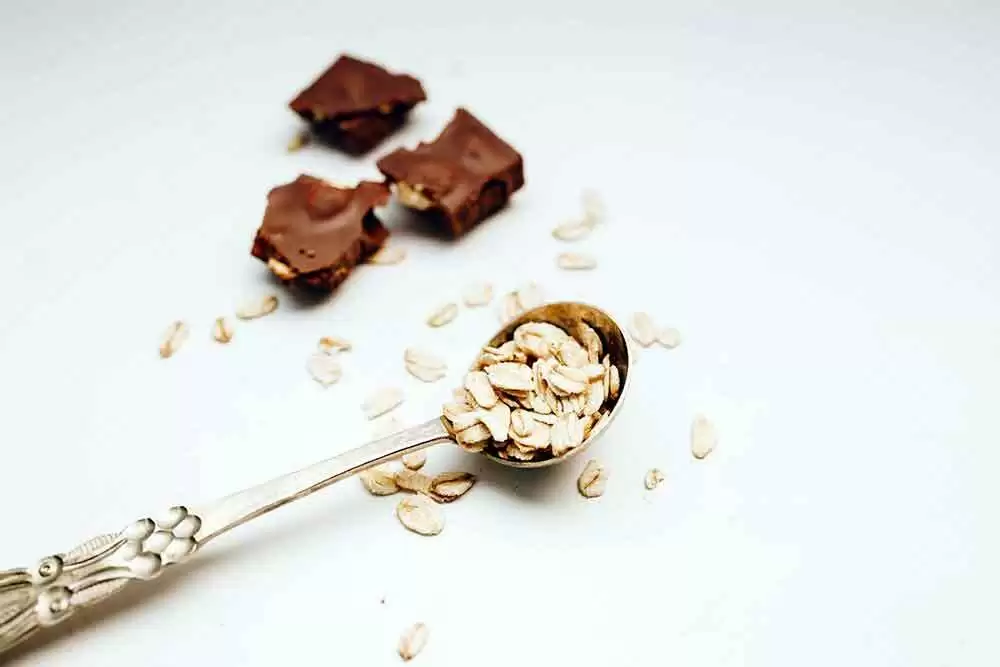
Celiac.com 02/27/2015 - The answer to the "oats questions" are becoming clearer.
 The long-asked question is "Can people with celiac disease or gluten sensitivity safely eat oats?" Some people are so sensitive, that even the tiniest bit of gluten makes them feel unwell. So this answer is important because people on a gluten-free diet should not restrict foods unnecessarily. There are several aspects to this question:
The long-asked question is "Can people with celiac disease or gluten sensitivity safely eat oats?" Some people are so sensitive, that even the tiniest bit of gluten makes them feel unwell. So this answer is important because people on a gluten-free diet should not restrict foods unnecessarily. There are several aspects to this question:
-
1. Avenin: Oats do not naturally contain gluten ... but there is a similar protein called "avenin" found in oats that has the same properties as gluten (it is the "prolamine storage protein" of oat seeds, that helps protect the dormant seed and nourish it when it begins to grow).
Celiac.com Sponsor (A12):
Fortunately, adverse reactions to this oat protein are rare. A study of 10 pertinent studies, with a total of 165 patients, found only 1 patient who had histological gut damage as a result of eating oats. This condition is now called "avenin-sensitive enteropathy" (ASE). This is documented by Garsed & Scott "Can oats be taken in a gluten-free diet? A systematic review" (Scand. J. Gastroenterol. 2007:42: 171–8.Clinical reports now provide strong evidence that oats very rarely cause damage to the gut mucosa in people with celiac disease. Subsequently, guidelines from many coeliac societies now reflect this new evidence. Moderate amounts of oats (half a cup of oats a day) can be consumed by most celiacs without risk of damaging intestinal villi. However, it is important to emphasise that these oats must be free of other contaminating gluten-cereals.
What is not reported is whether some of these people experience symptoms (feel unwell) despite the healthy appearance of their gut under a microscope. These people might have an "avenin-sensitivity" similar to gluten-sensitivity without any accompanying gut damage. This question has not yet been investigated.
-
Cross-contamination: The reason that many people apparently react to oats is not because of the avenin, but to inadvertent gluten contamination. In other words, wheat and other gluten-grains accidentally get into the oats.
Traces of gluten are commonly found in packets of oats–this is from the cross-contamination of oats with other gluten-grains. This contamination can occur during any stage of the life-cycle of oat production: the planting, the harvesting, the transportation, the processing and the refining of oats. It is almost impossible to avoid such cross-contamination unless all this machinery is exclusively devoted to oats production. This requires large-scale production as is seen in the USA.
One research group analyzed a total of 134 oats samples, comprising grains and commercial oat products collected from Europe, the United States and Canada. This study confirmed that most oats were contaminated with mixtures of wheat, barley and rye (Hernando et al. "Measurement of wheat gluten and barley hordeins in contaminated oats from Europe, the United States and Canada by Sandwich R5 ELISA". Eur J Gastroenterol Hepatol. 2008 Jun;20:545-54.)
-
Level of gluten sensitivity: How intensely people react to gluten varies. Some people can eat moderate amounts of gluten and have no symptoms at all. Whilst many are so sensitive that even the tiniest amount upsets them. Thus, minimal cross-contamination of oats with gluten is a problem for a significant proportion of the gluten-sensitive community.
It may be that people who have extreme gluten sensitivity are more likely to react to avenin. It is my observation that super-sensitive gluten reactors seldom tolerate oats. However, this subject has not been researched.
-
Asymptomatic gluten damage: Oddly, some people can have the gut damage of celiac disease without experiencing noticeable symptoms. They have severe gut damage but are completely unaware of it. Such a diagnosis is usually discovered by screening blood test. As these people do not get any symptoms from gluten, they would not know if oats are upsetting them either! These asymptomatic celiacs need to be followed up with regular blood tests (and perhaps subsequent biopsy) to ensure that they are healing.
-
Why bother with oats?
The ability to use oats in your diet gives an important source of fibre as well as other important nutrients. They have a low glycemic index (GI) which makes them satisfying to eat. Also, eating oats will contribute to lower cholesterol levels. And of course, it gives you a valuable additional food to make the topping on apple-crumble, hot oat porridge on a cold morning, and a crunchy, tasty muesli.
Some companies certify their oats to be gluten-free, which means they are free from any cross-contamination. If you are very sensitive to gluten, then you might not tolerate oats. The best thing to do is try a little and see.
- Do blood tests: "Get a blood test!" is my mantra. So many people go gluten-free without a blood test. So many people with celiac disease never get follow-up blood tests. It is important to get a firm diagnosis of celiac disease / gluten sensitivity. Then to get more tests a year or two later to make sure that your body is healing. One way to check out how you are tolerating oats in your body is to get regular blood test checks for gluten (IgG-gliadin) and for tissue damage (DGP/tTG)–for more details please visit me at my website.




Recommended Comments
Create an account or sign in to comment
You need to be a member in order to leave a comment
Create an account
Sign up for a new account in our community. It's easy!
Register a new accountSign in
Already have an account? Sign in here.
Sign In Now